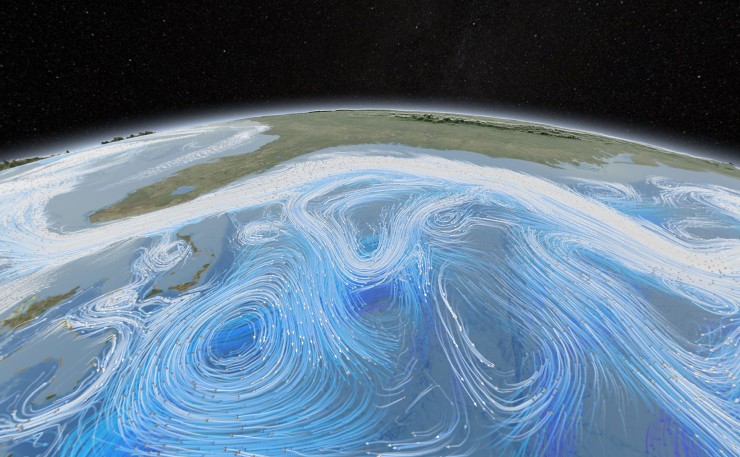A new report from Oxfam has highlighted how the unholy confluence of a likely ‘super El-Niño’ and what’s tipped to be the hottest year on record could throw millions of the world’s poorest people into food insecurity, offering a terrifying template for a climate change altered future.
The report, released yesterday, urges governments of the world to nail down an effective climate pact when they meet in Paris this December, amid fears the biting droughts and unpredictable seasons being forecast could represent a “new normal”.
“Extreme weather events are only going to increase as climate change ramps up,” said Oxfam Australia’s Chief Executive Dr Helen Szoke. “Governments must wake up to the fact that climate change is already happening and there is an urgent need for a global deal to tackle it,” she said.
El Niño is the name given to a periodic heating-up of the surface of the tropical Pacific Ocean, which occurs as trade winds weaken and warm water usually confined to the western Pacific flows eastwards, away from Indonesia and towards Peru.
The phenomenon creates a huge release of heat into the atmosphere that influences global weather patterns and the rainfall farmers rely on.
As Dr Szoke points out, “2014 was the hottest year on record and this year looks set to exceed it”.
According to data from America’s National Oceanic and Atmospheric Administration reaching to August this year, four of those seven months have been the hottest ever recorded. Two others were the second warmest ever recorded, and the remaining month, April, was the fourth hottest since records began in 1880.
Adding to the stresses this will place on food production is the fact that, as climate change bites, at least one study is predicting that ‘super El-Niños’ will become twice as common as before.
This year’s el-Niño could be one of the most powerful yet, and the worst since the last ‘super el-Niño’ in 1997-8.
In its report Oxfam notes that “as temperatures rise and climatic disruption increases, the humanitarian system, already under great strain, will be severely tested as never before”.
“Climate change increases the instability of the seasons, makes rainfall even more erratic, increases heat extremes and brings more intense storms and droughts,” the report said.
The 1997-98 El-Niño wrought around $33 billion in property damage and caused 2,000 deaths, according to Oxfam, and this year’s comes as 4.5 million Ethiopians are already expected to be in need of food aid by November.
In the Somali region of Ethiopia 76 per cent of inhabitants, or around 400,000 people have been identified as food insecure, and in another region known as Oromia harvests are expected to be less than half of what’s required.
In Zimbabwe 16 per cent of the rural population (around 1.5 million people) are expected to face food insecurity between January and March next year at the peak of the lean season.
Closer to home, Indonesia’s national disaster management agency has declared that the majority of the country’s 34 provinces are experiencing drought caused by El Niño.
Papua New Guinea has been hit by torrential rains that caused landslides, followed by drought and severe heat that withered crops. According to the country’s National Disaster Centre, two million people are affected.
By February 2016, more than two million people in Malawi are expected to be struggling to find enough food. In Guatemala losses of maize and bean crops are predicted to be between 50 and 100 per cent, and food production in El Salvador, and Honduras is also hard-hit.
The El-Niño is expected to reach maximum strength between October and January and subside over the four months following, and Oxfam is calling for increased donations as a chronically under-resourced world humanitarian program prepares to do what it can to absorb the shock.
Oxfam’s concerns follow earlier expressions of alarm from World Meteorological Organisation’s Director of the World Climate Research Programme, David Carlson, who said in September “we are working on a different planet and we fully do not understand the new patterns emerging”.
“This is a new planet,” Carlson said. “We have no precedent.”
Donate To New Matilda
New Matilda is a small, independent media outlet. We survive through reader contributions, and never losing a lawsuit. If you got something from this article, giving something back helps us to continue speaking truth to power. Every little bit counts.




